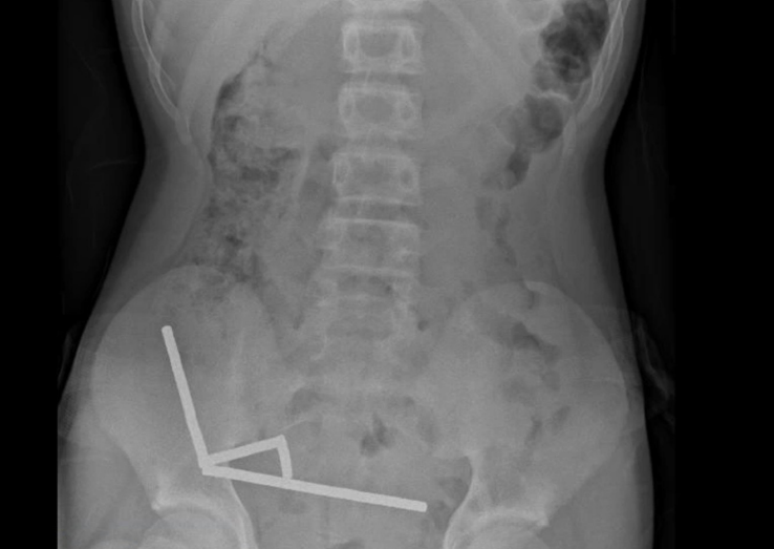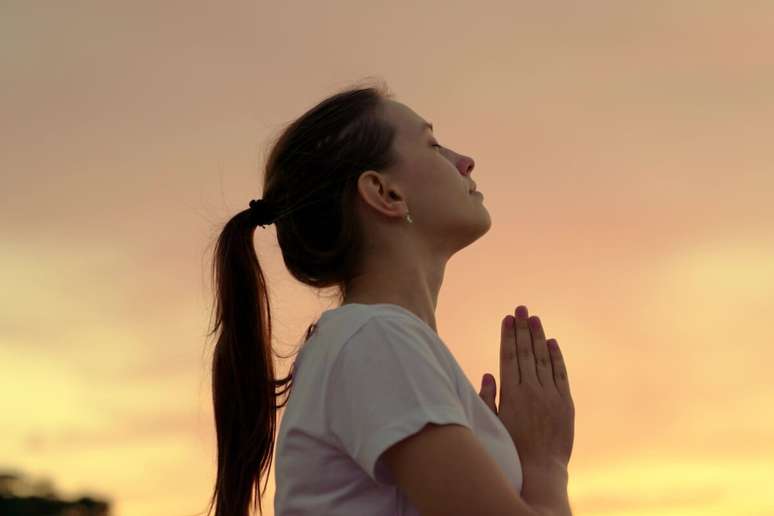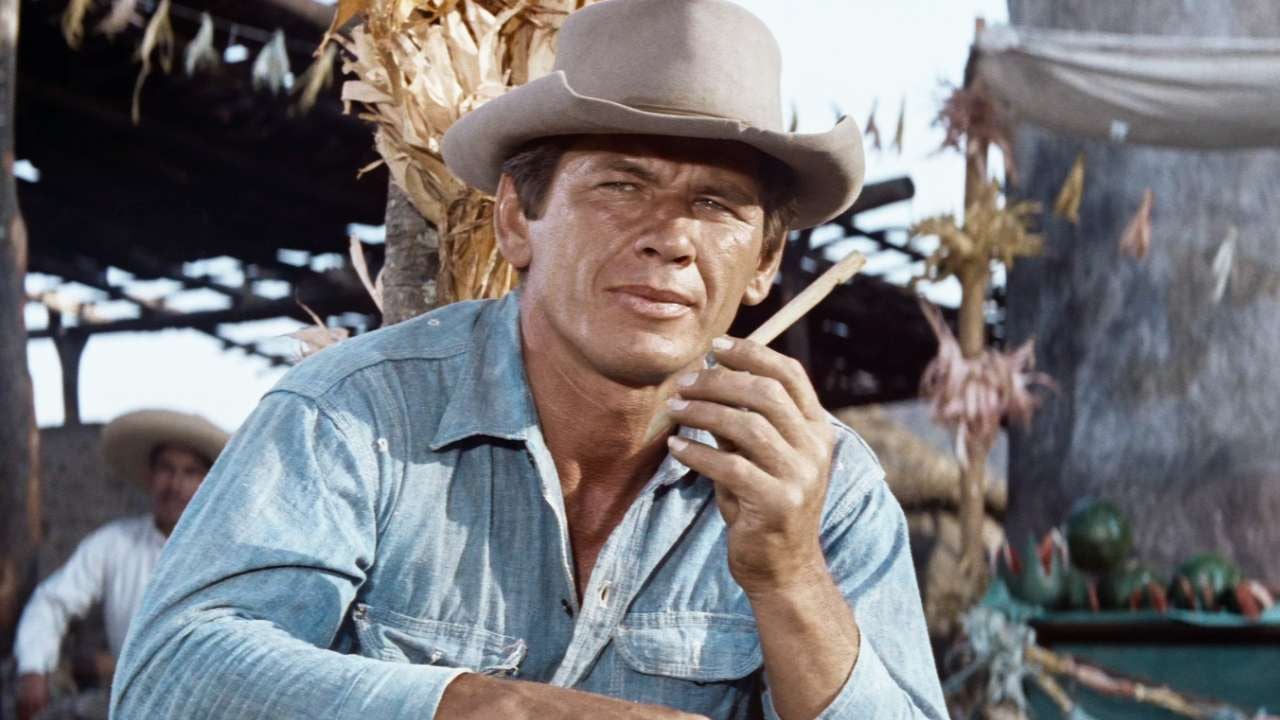Research shows that the full moon can affect sleep, but there is no concrete evidence that it causes psychiatric crises
Have you ever tossed and turned in bed under the light of the full moon wondering if it was its glow that was keeping you awake? For generations, people have believed that the Moon had the power to cause sleepless nights and strange behavior, even insanity. The English word “folly” (madness) comes directly from moonwhich means Moon in Latin.
Police officers, hospital workers and emergency workers often swear that their nights get busier under a full moon. But does science confirm it?
The answer is, of course, more complex than popular tradition suggests. Research shows that the Full Moon may modestly affect sleep, but its influence on mental health is much less certain.
I am a neurologist who specializes in sleep medicine and studies how sleep affects brain health. I find it fascinating that an ancient myth about moonlight and madness can be traced back to something much more common: our restless sleep in the moonlight.
What the full moon really does for sleep
Several studies show that people actually sleep differently in the days leading up to the full Moon, when the moon’s light shines brightest in the night sky. During this period, people sleep about 20 minutes less, take longer to fall asleep, and spend less time in deep, restful sleep. Large population studies confirm this pattern, finding that people from different cultures tend to go to bed later and sleep for shorter periods on the nights before the full Moon.
The most likely reason is light. A bright moon at night can delay the body’s internal clock, reduce melatonin – the hormone that signals bedtime – and keep the brain more alert.
The changes are modest. Most people only lose 15 to 30 minutes of sleep, but the effect is measurable. It is strongest in places without artificial light, such as rural areas or camping. Some research also suggests that men and women may be affected differently. For example, men appear to lose more sleep during the waxing phase, while women experience slightly less deep and restful sleep during the Full Moon.
The link with mental health
For centuries, people have blamed the full moon for awakening madness. Folklore suggested that its glow could trigger mania in bipolar disorders, trigger seizures in people with epilepsy, or trigger psychosis in people with schizophrenia. The theory was simple: If you lose sleep under the bright moon, vulnerable minds could become destabilized.
Modern science adds an important twist. Research clearly shows that sleep loss itself is a powerful contributor to mental health problems. Even a rough night can increase anxiety and worsen mood. Continued sleep disturbances increase the risk of depression, suicidal thoughts, and flare-ups of conditions such as bipolar disorder and schizophrenia.
This means that even the moderate sleep loss seen during the Full Moon could be more significant for people already at risk. Someone with bipolar disorder, for example, might be much more sensitive to reduced or fragmented sleep than the average person.
But here’s the problem: When researchers step back and look at large groups of people, the evidence that moon phases trigger psychiatric crises is weak. No reliable pattern was found between Lua and hospital admissions, discharges, or length of stay.
But some other studies suggest there may be small effects. In India, psychiatric hospitals saw increased use of restraints during the Full Moon, based on data collected between 2016 and 2017. In China, researchers observed a slight increase in hospitalizations for schizophrenia during the Full Moon, using hospital records from 2012 to 2017. However, these findings are not consistent across the world and may reflect cultural factors or local hospital practices as much as the biology.
Ultimately, the Moon can reduce sleep duration somewhat, and sleep loss can certainly affect mental health, especially for more vulnerable people. This includes those with conditions such as depression, bipolar disorder, schizophrenia or epilepsy, and adolescents who are particularly susceptible to sleep disorders.
But the idea that the full Moon directly causes waves of psychiatric illness remains more myth than reality.
Other hypotheses fail
Over the years, scientists have explored other explanations for the supposed lunar effects, from “tidal” gravitational forces on the body to subtle geomagnetic changes and changes in barometric pressure. However, none of these mechanisms stand up to close scrutiny.
The gravitational forces that move the oceans are too weak to affect human physiology, and studies of geomagnetic and atmospheric changes during the phases of the moon have produced inconsistent or insignificant results. This makes sleep disruption caused by exposure to light at night the most plausible link between the Moon and human behavior.
Because the myth persists
If the science is so inconclusive, why do so many people believe in the “full moon effect”? Psychologists emphasize a concept called illusory correlation. We notice and remember the unusual nights that coincide with the full Moon, but we forget the many nights when nothing happened.
The Moon is also clearly visible. Unlike hidden factors that disrupt sleep, like stress, caffeine, or cell phone use, the Moon is right there in the sky, easy to blame.
Lessons from the Moon for modern sleep
Even if the Moon doesn’t drive us “crazy”, its small influence on sleep highlights something important: light at night is important.
Our bodies are designed to follow the natural cycle of light and dark. Extra light at night, whether from the moon, streetlights or cell phone screens, can delay circadian rhythms, reduce melatonin and lead to lighter, more fragmented sleep.
This same biology helps explain the health risks of daylight saving time. When clocks “jump forward,” nights stay artificially brighter. This change delays sleep and disrupts the circadian rhythm on a much larger scale than the Moon, contributing to increased accidents and cardiovascular risks, as well as reduced workplace safety.
In our modern world, artificial light has a much greater impact on sleep than the Moon will ever have. That’s why many sleep experts advocate permanent standard time, which better fits our biological rhythms.
So if you feel restless on a full moon night, you might not be imagining things: The moon can affect your sleep. But if insomnia occurs frequently, look closer to home. The culprit is likely the light in your hands, not the light in the sky.
This content was originally published in The conversation. To read the original text, .
Source: Terra
Ben Stock is a lifestyle journalist and author at Gossipify. He writes about topics such as health, wellness, travel, food and home decor. He provides practical advice and inspiration to improve well-being, keeps readers up to date with latest lifestyle news and trends, known for his engaging writing style, in-depth analysis and unique perspectives.








